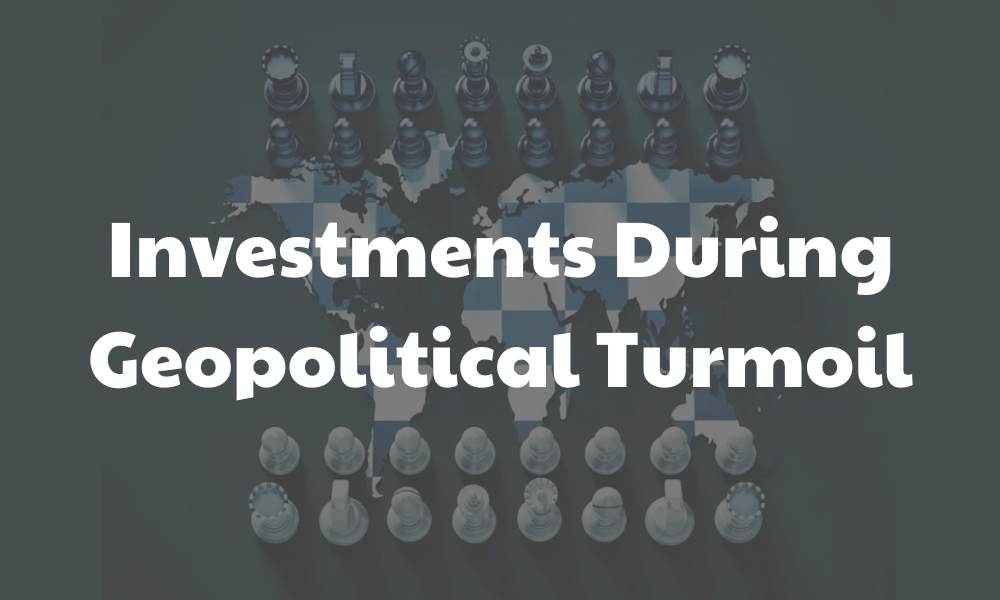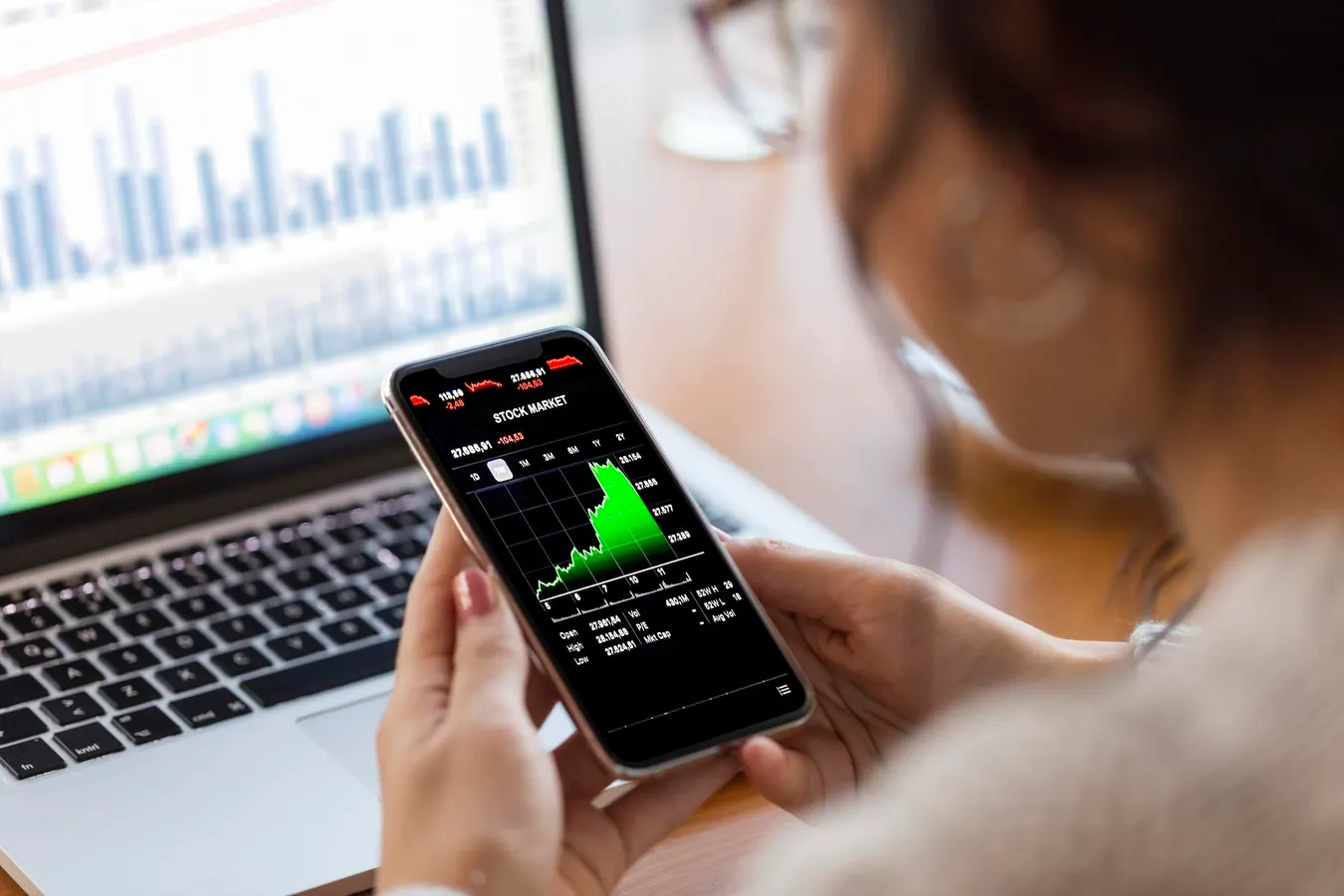Investments During Geopolitical Turmoil: It’s like steering a ship through a storm. Your money needs a safe port as waves of uncertainty crash against global markets. Here, I’ll guide you through the choppy waters of economic strife. How can gold secure your wealth when countries clash? Which stocks stand tall while others fall? Every move counts. Cloaked in my expertise, you’ll uncover the secrets of hedging your assets, spotting resilient economic sectors, and understanding currency swings. Let’s build a fortress for your finances, together.
Understanding Safe Havens and Hedging Strategies in Times of Conflict
Exploring Gold as a Crisis Commodity
When trouble hits, where does money feel safe? Gold glints as an answer. Why? Well, gold holds its value when other assets don’t. It shines while stocks might slump and currencies may crumble. It’s like your financial guard dog. It keeps watch over your wealth.
Do you make money from gold in a crisis? Yes, often you do. It’s a beacon for nervous investors. When they rush to it, the price jumps up. That’s good for your pocket if you own gold. But when do you buy? Before a storm hits, that’s key. Owning gold early means you’re set when markets shake.
Gold isn’t just a shiny rock. It’s a safe haven during conflict. History has shown this. People have trusted gold for years. And it’s not just old tales – data backs it up. Gold often goes up when uncertainty strikes. It’s not perfect, but it’s a battle-tested champ in the investment ring.
Now, let’s break down why gold works. It’s rare and tough to make more of. Unlike money, which can be printed, gold’s supply is steady. So, as fear rises, demand for gold leaps, and with more people wanting gold but not a lot to go around, its price can soar.
One more tip: mix it up with a bit of gold in your portfolio. Not too much – it shouldn’t take over. Mixing investments helps soften the blow from an unstable world. But remember, gold investing in crisis is about balance. Don’t put all eggs in one basket, right?
Identifying Defense Stocks and Resilient Sectors
Now, what about stocks when guns roar and tensions are high? Defense stocks can be your go-to. They’re the ones tied to military and defense. When countries bulk up their militaries, these stocks could rise. But it’s not just about defense companies. Other sectors can also be conflict resilient.
So, what are conflict resilient sectors? They’re areas that keep going, even when chaos is all around. Think food, healthcare, and utilities. People need to eat, stay healthy, and keep the lights on. So, these sectors can still do well when trouble is brewing.
Let’s talk more about defense stocks. They can surge when security fears grow. Countries might want new tech and gear. That’s wind in the sails for firms that make those things. But watch out – this isn’t a sure thing. Other factors can pull these stocks down. Always do your homework before diving in.
One step further, look for war impact on stock markets. It’s not all bad news. Not every firm or sector sinks. Some even thrive. It’s tough, but if you pay close attention, you can spot winners even when times are tough.
In short, when the world shakes, think gold and sturdy stocks. Look for those that can weather the storm. It’s about finding safe spots for your cash to ride out the rough patches. Getting it right means you might not just get by – you could even end up ahead.
The Macroeconomic Impact of War: Stock Markets and Commodities
Analyzing the Effects of Conflict on Stock Market Volatility
When conflicts hit, stock markets often shake. Think of stocks like a scared cat. Loud noises—like war—make it jump. But not all stocks jump the same way. Some sectors can actually do well during wartime, especially those tied to defense. This is because governments might spend more on defense products. So, defense stocks might see their value go up. Still, it’s tricky. If a war drags on or gets worse, even defense stocks might suffer.
Currency Dynamics and Commodity Trading During Geopolitical Unrest
Now let’s talk about money and stuff we trade, like oil and gold. War can make a country’s money worth less. That’s because people think the country is now a riskier place. They want to keep their wealth safe. That’s why they turn to things like gold. It’s like a financial security blanket. It doesn’t get ruined by wars or governments making bad choices.
Oil prices can shoot up, too. Countries fight over places with lots of oil. If oil is hard to get because of war, prices go up. Everyone needs oil, from car owners to big factories. When the cost of oil jumps, it affects other prices as well, like food and travel.
In times of trouble, it’s smart to spread your investments. Don’t put all your eggs in one basket. This way, if one investment falls, you have others to hold you up. It’s good to keep an eye on things that usually don’t drop when stocks do. We call these ‘non-correlated assets.’ Stuff like treasury bonds can be steady even when stocks are not.
During war, trading stuff like crops or metal gets hard. Ships and trucks that carry these things can’t always get through fighting areas. This means some things can get really pricey. Smart investors watch for these changes. They try to buy stuff when it’s cheap and sell when it’s dear.
In all, war can toss stock markets and trade into a storm. Smart moves can help you ride it out. Remember to look out for defense sectors and safe havens like gold. Try to not rely too much on one type of investment. And keep cool. Quick moves can lead to mistakes. Instead, think about what happens next. This way, you can make choices that might pay off even when times are tough.
Investment Diversification and Risk Assessment Amidst Geopolitical Tensions
Crafting a Long-Term Investment Strategy for Geopolitical Stability
When times are tough and the world seems at odds, smart investing must not pause. War and unrest can shake up even the best of markets. But we can shield our cash from these storms. We start by weaving a strong, varied investment net. Think of it like packing for all weather on a trip. You would carry an umbrella, sunscreen, and maybe a warm hat.
This net, or as we pros say, a “diversified portfolio,” is key. It’s not wise to put all your eggs in one basket. Right? So we spread them out. Some eggs might crack if a market dips. But others will stay safe and may even grow. We mix it up with stocks, bonds, and even gold. Gold shines bright in crisis times. Markets may flop, but gold often stays strong.
Now, let’s put our focus on long-term goals. Short wins are great, but we’re here for a marathon, not a sprint. Patience is our friend. Markets will bounce back. They always do. Stay calm, keep a diversified mix, and watch your investments grow over time.
Assessing the Role of Treasury Bonds and Real Estate in a Turbulent Climate
Let’s dig into treasury bonds and real estate; two big players when the world gets shaky. People flock to treasury bonds in scary times. They’re like a cozy blanket for your cash. Governments back them, so they’re usually a safe bet. When stocks take a hit, these bonds often stand firm. They may not be flashy, but they offer peace of mind.
Real estate is another story. It’s a bit like planting a tree. It may take time to grow, but it’s usually worth the wait. Sure, turmoil can rattle this market. But folks always need a place to live or do business. So owning a piece of the land can be smart. It’s a tangible asset, unlike a number on a screen. And if you rent it out, you get a steady cash flow, no matter the market mood.
To sum up, our toolkit for coping with unrest has many tools. Diverse holdings give us strength. Bonds and real estate offer shelter when storms hit. Factor in some gold and you’re set to weather any trouble. PodsDummy
Navigating Investment Opportunities in a Changing World Order
The Adaptability of Cyber Currencies and Digital Assets in Conflict Zones
When chaos hits, where do we turn to keep our money safe? Cyber currencies, friends. In troubled spots, they shine bright. You see, unlike physical cash, cyber cash doesn’t need banks that can close or get hit by bombs. It moves fast, across borders, without a care for curfews or checkpoints. Cyber coins have a power of their own.
Ask me, are they the perfect safe haven during conflict? Not quite. Prices jump around a lot. But boy, do they offer some cool options for those looking to dodge the dangers of war on their wallet. Folks in strife-torn areas? They use it to buy stuff, send money, and keep their savings away from the grip of unreliable banks.
Some may say, “Gold has been the go-to in crisis, what about that?” Sure, gold is steady. But it’s bulky, hard to move, and you can’t send it through the internet. Cyber cash, with a click, you can send it across the world.
Investors must grasp one thing though: you need to be careful. Cyber cash calls for smart safety moves. Keep keys to your coins safe from hackers. Diversify, never put all eggs in one digital basket.
Evaluating the Sustainability of Sovereign Debt and Emerging Markets During Political Crises
Now, let’s talk about places where rules change and leaders come and go. Investing in emerging markets is like riding the wildest rollercoaster if politics go haywire. The ride? It’s thrilling. But when coups and crises hit, it’s a white-knuckler.
Sovereign debt sustainability during conflict? It’s a mix of art and science. Before you dive in, you’ve got to know the land, the leaders, and the laws. Some countries have sturdy backbones, they can handle the heat of politics. Others? Not so much. Their debt turns sour fast when crises pop up.
So, what’s an investor to do? Simple. You need to wear the hat of a geopolitical risk assessor for investors. Study the terrain. Watch for economic sanctions effects on investments. They can change the game overnight.
Remember, when governments go south, the debt can crumble. For those brave enough, there’s money to be made. But you’ve got to be sharp. Look for hints, like protests or votes that might shake the stage.
Finding gems in the rough of emerging markets takes guts and brains. Do your homework. Lean on insights from world bodies like the UN. They’ll help you steer clear of the worst and maybe find some winners.
In the end, it’s a balance act. Pick solid spots resistant to the drama, and your portfolio might just dance through the turmoil with finesse.
We’ve explored how to shield your finances in tough times. Gold shines as a safe bet when crisis hits. Defense stocks and tough sectors also stand tall. We saw how war shakes stock markets and spikes volatility. Conflicts can twist currency values and shake up commodity trading.
To stay steady, smart diversification is key. Think long-term to navigate these stormy waters. Treasury bonds and real estate could be your anchor. With the world changing fast, we must adapt. Cyber currencies show promise, even in conflict zones. Yet, stay sharp when eyeing sovereign debt and emerging markets—they’re not all solid ground.
Remember, risks are out there. But with the right moves, you can keep your investments safe, even when the world is not. Stay informed, stay prepared, and keep looking ahead. Your financial security doesn’t take a back seat—not even when the globe is in turmoil.
Q&A :
How can geopolitical turmoil impact global investments?
Geopolitical turmoil can cause significant fluctuations in global investment markets. Such events can lead to increased volatility as investors react to uncertainty, often resulting in quick selloffs or shifts to safer assets. Long-term geopolitical conflicts can affect global supply chains, currency values, and foreign investment inflows, impacting sectors like energy, finance, and commodities.
What are safe investment options during geopolitical instability?
During periods of geopolitical instability, investors often seek “safe haven” assets. These typically include gold, U.S. Treasury bonds, the Japanese yen, and sometimes the Swiss franc. Real estate and utilities are also considered more stable investments because they provide essential services that remain in demand regardless of geopolitical issues.
How can investors mitigate risks associated with geopolitical conflicts?
Investors can mitigate risks by diversifying their investment portfolios across different asset classes and regions. This strategy helps spread out potential risks and can be a buffer against the impact of regional instability. Staying informed about global events, maintaining a long-term investment perspective, and possibly hedging investments using options or other financial instruments can also minimize risk exposure.
What investment strategies are recommended during times of geopolitical uncertainty?
Financial advisors typically recommend a conservative approach during high geopolitical unrest. Strategies may include maintaining liquidity, focusing on capital preservation, sticking to investments with less exposure to the affected regions, and considering counter-cyclical stocks that tend to perform well even during economic downturns. Adjusting asset allocation to include more defensive stocks such as healthcare and consumer staples can also be prudent.
Can geopolitical turmoil create investment opportunities?
Yes, geopolitical turmoil can create investment opportunities for those willing to assume higher risk. Market downturns may present opportunities to buy undervalued assets. Some investors look to capitalize on eventual recoveries or invest in companies that may benefit from the geopolitical situation, such as defense contractors during times of increased military activity. However, timing such investments can be challenging and requires careful analysis and risk tolerance.






